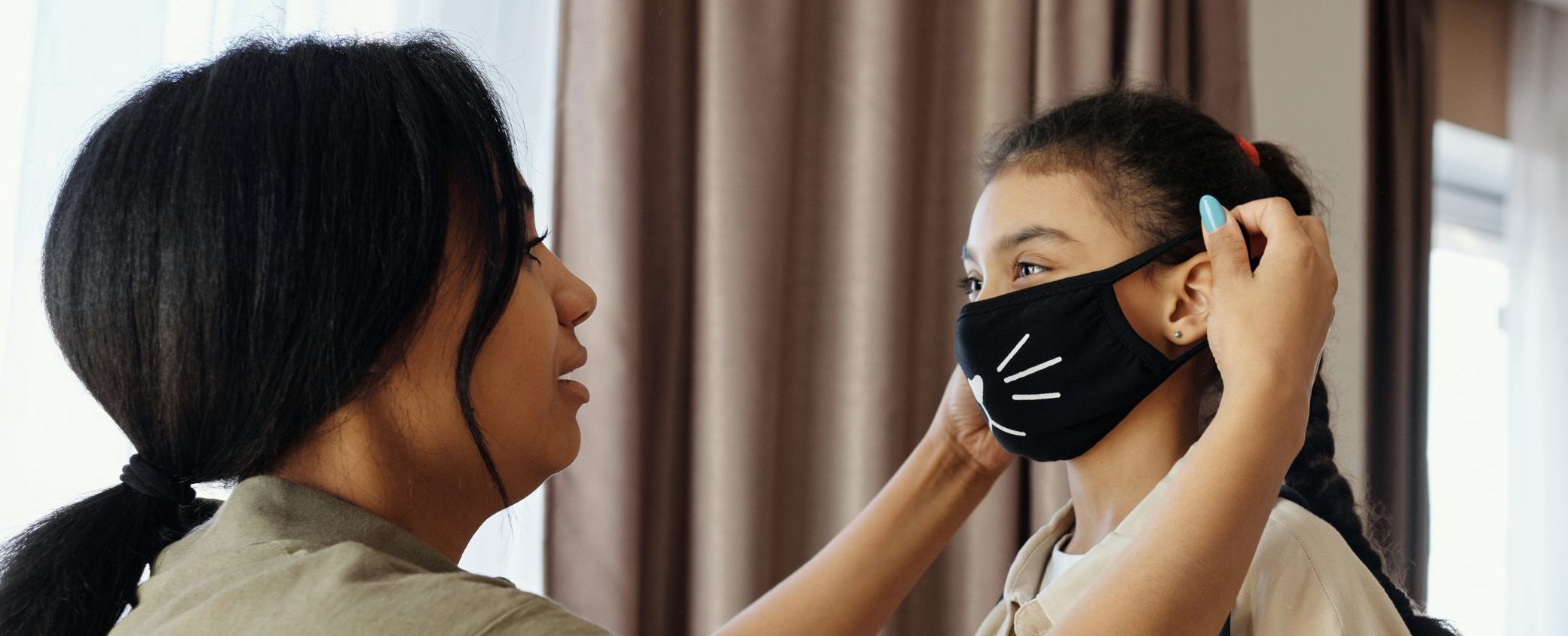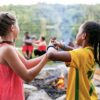Teaching our children how to navigate social interactions during Covid is a great way to teach them broader skills about consent and setting physical boundaries. Consent is about much more than sexual interactions and begins at an earlier age than most people realize. For many of us, learning about consent actually begins in preschool where we learn early on where our bodies start and another person’s body begins. In that context, consent education is often about when and how we can put our hands on our friends. Preschool teachers spend a lot of time giving kids the language and tools to ask their friends if they can do things like touch their hair or hold their hand. At our Dynamo Girl classes for girls aged 4 and up we often visit the issue of consent during moments like finding our spot in line without making someone else feel uncomfortable or asking permission before we touch a friend’s sequin emoji shirt. And over the last several months, my family has faced many opportunities for learning about consent and understanding peoples’ boundaries in the context of Covid-life in areas like: mask wearing, social distancing and complex social interactions.
Since emerging from quarantine, in an effort to empower our kids as they re-enter the world, we have worked with them to: establish their physical boundaries, anticipate the challenges they might encounter, discuss how to handle a particular situation and then practice together how they might respond. We have explored questions like: who can be near us or touch us? What can we say when we’re uncomfortable? Who can we ask for help when we’re in a tricky situation? When we are meeting friends in the park or going to soccer practice, we have helped our kids express what they are comfortable with and how to show respect for other families’ rules and boundaries. Building muscle memory around talking about our own bodies is really no different than teaching a child to throw a baseball — our best bet is to start practicing young and to do it over and over and over again so that our child builds muscle memory and can throw automatically. Just like learning to throw, when we practice the skills of expressing ourselves, we get used to having a voice in what can, at times, feel complicated and awkward. It’s one thing to tell a child that we don’t want them to take their mask off when walking down the street, it’s an entirely different thing to say to a child, “Here’s a scenario: you and your friends are walking home from school and everyone takes off their masks before going into a store and they tell you it’s fine. What can you say to them?”
Here are a few strategies that have helped my family practice consent in the time of Covid. We have certainly made many mistakes along the way, but what I’ve learned is that through my finding a voice around our family’s boundaries, I have helped my kids find theirs as well.
-
- Be clear about what our expectations are as a family. Just like we discuss our values and rules in other areas of life (screentime, table manners, hygiene expectations) so too are we explicit with our kids about what our baseline expectations are.
- Wearing masks: when, where, how?
- What is social distancing? What does 6 feet apart actually look like?
- Is there a time when you can take off your mask? Be explicit, e.g. “when you are in the park and fielding baseballs, and if no one is around, you can take it off.”
- Be clear about what our expectations are as a family. Just like we discuss our values and rules in other areas of life (screentime, table manners, hygiene expectations) so too are we explicit with our kids about what our baseline expectations are.
-
- Practice handling tricky situations. As tempting as it is, we want our kids to have buy in with this so we can’t just TELL them what to say.
- Let our kids put into their own words what they might say.
- Give them some prompts if they get stuck.
- Offer some guidance on how to frame things so that the language is about their choices not about judging their friends.
- Give them permission to blame it on their parents’ if need be!
- Practice the script they develop so they can build the muscle memory.
- Practice handling tricky situations. As tempting as it is, we want our kids to have buy in with this so we can’t just TELL them what to say.
-
- Plan for the mistakes and build in choices. Creating a mistake-friendly environment takes the stress out of learning to manage this complicated time.
- As we tell the girls in our Dynamo Girl classes — learning does not happen without mistakes. And, if you spend any time reading about Covid, the guidelines change all the time so no one is getting this right all the time.
- Explore with them what kind of different choices they have in specific situations so that they are participants in the process and recognize that they may make mistakes.
- Be clear that our family’s safety doesn’t rest entirely on their shoulders — that is too great a burden to bear. Reinforce regularly that mistakes and choices are all part of this process.
- Plan for the mistakes and build in choices. Creating a mistake-friendly environment takes the stress out of learning to manage this complicated time.
Having these conversations can feel annoying and exhausting, to us and our kids, particularly when our older kids push back with, “I know!” but when I think about the skills we are building, I am reassured. Witnessing our kids learning to say what they need in order to keep themselves and others safe, makes it worth pushing through their initial resistance to the process. We are all building a skill set that will continue to serve us after Covid and throughout our lives.







